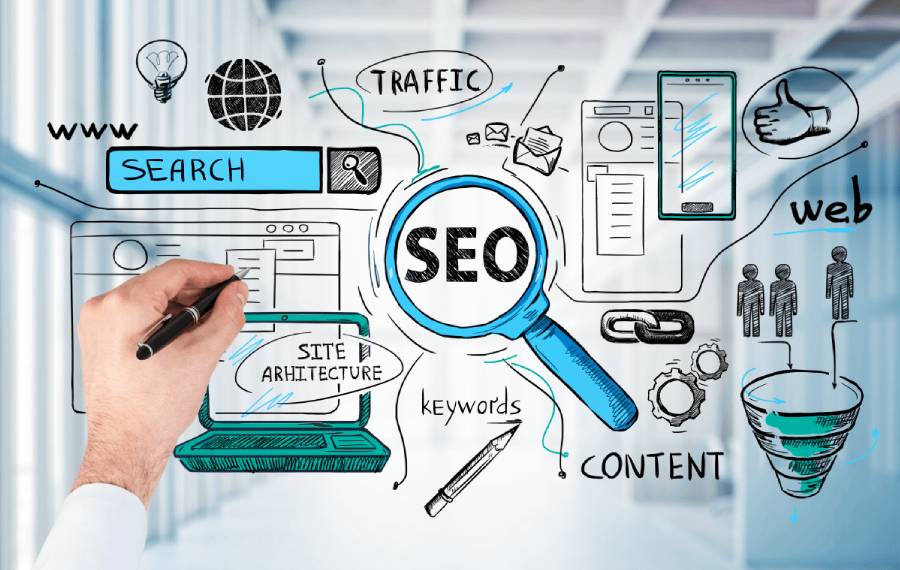What Is SEO and Why Does It Matter?
In today’s digital world, having a website is only half the battle — the other half is making sure people can find it. That’s where SEO comes in. Search Engine Optimization (SEO) is one of the most effective ways to bring traffic to your website without paying for ads. But what exactly is SEO, how does it work, and why should you care?
Whether you’re a business owner, startup founder, or marketer, understanding SEO is essential for growing your online visibility and attracting the right audience.
What Is SEO?
SEO stands for Search Engine Optimization. It refers to a set of strategies and techniques used to improve your website’s position on search engines like Google, Bing, or Yahoo. When someone types in a keyword related to your business — for example, “best website development service” — SEO helps your site appear higher in the search results.
The higher you rank, the more likely users are to click on your site. And more traffic means more potential customers, leads, or sales.
Why SEO Matters
Most users don’t scroll past the first page of search results. In fact, over 90% of search traffic goes to websites listed on the first page of Google. If your business isn’t there, you’re missing out on a huge chunk of potential traffic.
Here’s why SEO is so important:
- Drives organic (free) traffic to your site
- Builds trust and credibility with your audience
- Offers long-term results without ongoing ad spend
- Enhances user experience
- Supports all your other digital marketing efforts
Types of SEO You Should Know
To get the best results, SEO strategies are divided into several categories. Each type plays a unique role in boosting your site’s visibility.
1. On-Page SEO
This includes optimizing the content on your web pages. Key areas include:
- Using target keywords naturally
- Writing relevant meta titles and descriptions
- Adding internal links to related pages
- Using headings (H1, H2, H3) correctly
- Adding image alt text for accessibility
2. Technical SEO
This focuses on your website’s backend performance. Even if your content is great, technical issues can hold you back. Important elements are:
- Fast page load speeds
- Mobile-friendliness
- Secure HTTPS connection
- Proper indexing and crawling
- XML sitemaps
3. Off-Page SEO
Off-page SEO refers to efforts made outside your website to improve its reputation and authority, such as:
- Getting backlinks from other websites
- Guest posting on high-authority blogs
- Social media shares
- Business listings
4. Local SEO
If you run a local business (e.g., a dental clinic or design agency), local SEO helps you rank in “near me” searches. Key tactics include:
- Creating or claiming your Google Business Profile
- Getting customer reviews
- Adding local keywords like “web developer in Lahore”
SEO vs. Paid Ads: What’s the Difference?
Many businesses wonder whether to invest in SEO or just run paid ads like Google Ads or Facebook Ads. The truth is: both have value — but in different ways.
- Paid Ads give instant visibility, but the traffic disappears as soon as your budget runs out.
- SEO takes time to build, but once your site ranks, it continues to bring traffic without additional cost.
Think of SEO as building your own house. It requires effort up front, but it pays off long-term. Paid ads are like renting — useful for quick exposure, but not a lasting asset.
How Long Does SEO Take to Work?
SEO is not a quick fix. It’s a long-term investment. Depending on your competition, niche, and strategy, you may start seeing results in 3–6 months. However, some improvements like faster load speed or better mobile design can make a difference within weeks.
Consistency is key. Regularly updating your website, publishing blogs, and earning backlinks all contribute to steady growth in rankings.
How to Know If SEO Is Working
You can track your SEO performance using tools like:
- Google Analytics: See where your traffic comes from
- Google Search Console: Check how your site appears in search results
- SEMrush / Ahrefs / Ubersuggest: Analyze your keywords, backlinks, and competition
Key metrics to monitor:
- Organic traffic (visitors from search engines)
- Keyword rankings
- Bounce rate
- Average time on site
- Pages per session
Common SEO Mistakes to Avoid
Even well-meaning efforts can backfire if not done correctly. Avoid these common SEO pitfalls:
- Keyword stuffing (unnatural overuse of keywords)
- Using duplicate content
- Ignoring mobile optimization
- Not optimizing images
- Buying low-quality backlinks
- Skipping technical audits
A smart SEO strategy focuses on creating real value for your visitors — not just trying to “beat the algorithm.”
Conclusion
SEO isn’t just a marketing trend — it’s a crucial part of growing your business online. By investing in SEO, you’re investing in visibility, credibility, and long-term success. It may take time, but the results are sustainable, scalable, and cost-effective.
Whether you’re launching a new website or improving an existing one, make SEO a core part of your digital strategy in 2025. The sooner you start, the faster you’ll grow.

